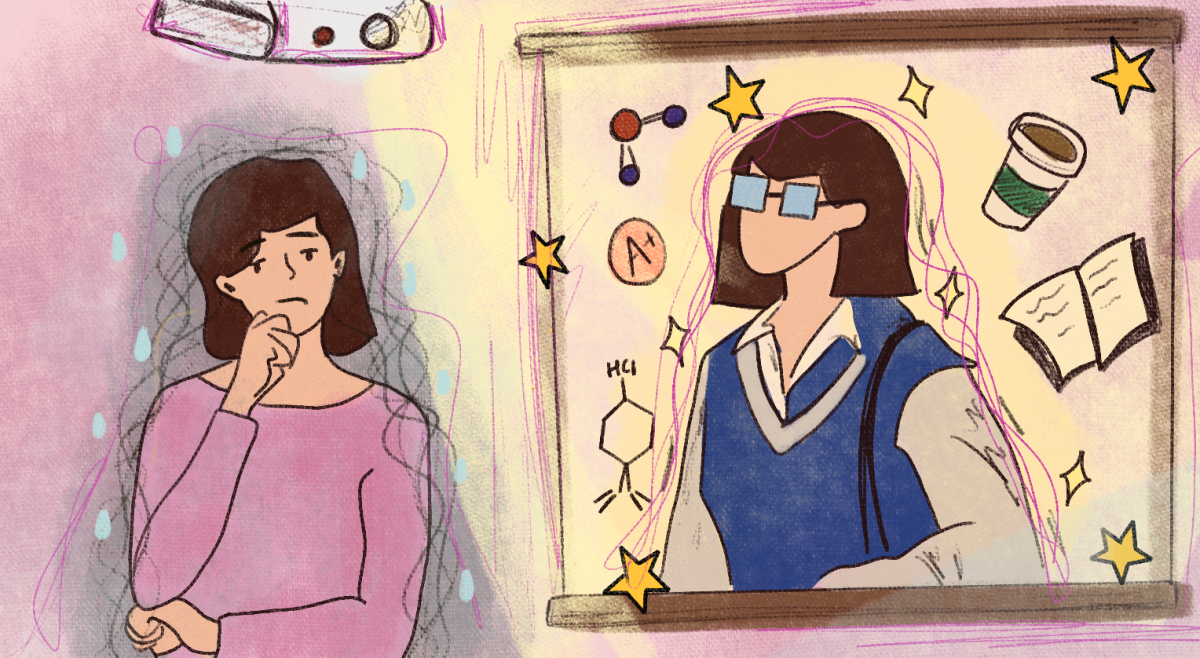“I love talking to second-semester seniors because it’s the equivalent of talking to senior citizens in hospice. You guys will say anything that’s on your mind.”
These were the words my Love and Indoctrination Capstone professor, Thomas Kaplan-Maxfield (or TKM if you’re pals), told my class. We were preparing for a discussion on how the world indoctrinates us into thinking a certain way. As grim as it sounds, TKM had a point. These days, there’s very little I hold back because what’s the point? I’m never going to be at Boston College again. If asking these questions is part of “senioritis,” then why is it seen as such a big, bad thing?
For years, colleges have been labeling senioritis as a disorder that promotes laziness, procrastination, anger, lack of motivation—you name it. There’s been a search for a cure for this wretched and horrible disease. But I want to argue that senioritis is a virtue.
Ever heard the old saying honesty is the best policy? As TKM pointed out, we seniors will say anything. I’ve always been blunt, but now, what’s the point of holding back?
The other week, I caught myself asking the “what’s the point” question. We were learning about X-bar sentence trees when I raised my hand and said, “Look, I’m not trying to be snarky here or anything, but why does this matter?” As straightforward as I am, this was odd for me. To my surprise, I got one of the best responses I’ve ever received from a professor. Professor Foley explained how X-bar theory has been able to contribute to the overall good of universal language and more that will probably put you to sleep. But, to me, it made me understand the X-bar concept in a whole new way—all because I didn’t care about asking an out-of-pocket question.
Beyond my newfound honesty, I argue that senioritis holds us students accountable—just in a very different sense of the term. If you give me a bad grade because of it, fine—my GPA doesn’t define who I am. I’ll gladly take that C, fully aware of the consequences. I am who I am because of almost everything else, not a meaningless number. How I act, how I respond to situations, how I interact with others, the judgments I choose to pass or not to pass on people, the standards I hold myself to—this is who I am. Senioritis is helping me choose to show it now instead of keeping it in because it doesn’t matter anymore.
If I were a freshman who received a C, I’d probably be going to office hours, telling my professor that I’m trying, but it’s hard to adjust to all the changes, or some other sob story. Do you think life has gotten easier since my first year? Hell, no! I’m adjusting to a billion more things now than I was back then. But now, I’m taking personal accountability. I’m saying “whatever” to the battles I know I’ll lose so I can focus on winning the war. I’m responsible for that C—I know—but I’m also responsible for submitting job applications, calling my mom, finding time for myself, and checking in on my friends.
This “senioritis” that professors want to hate on actually pushes us to step outside of our comfort zones more than ever. People say that senioritis makes us careless, but I’m still thinking when I’m in class. What’s different now is that I’m focusing on what’s going to help me gain “life skills” when I graduate.
I signed up for an acting class because having to play an emotional Hamlet in a monologue brings me out of my comfort zone. I’m only going to be pushed further out of my comfort zone in five years, so why not do it now? The same frame of thinking can be said for the dance class or the ASL class someone signed up for. These classes are new to us, and that’s what makes them a challenge.
Maybe we’re indoctrinated into thinking a certain way, and because of it, these stigmas we put on things end up holding us back. Call me a slacker, but you can’t tell me I’m not being true to myself—there’s always another angle.
Thank you, senioritis. [/vc_column_text][/vc_column][/vc_row]













